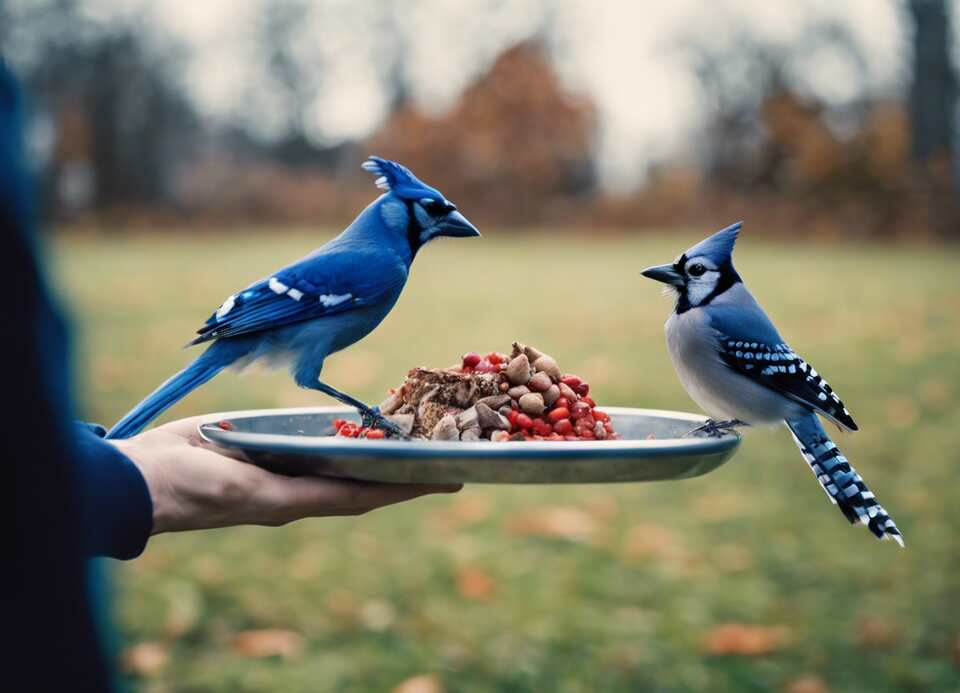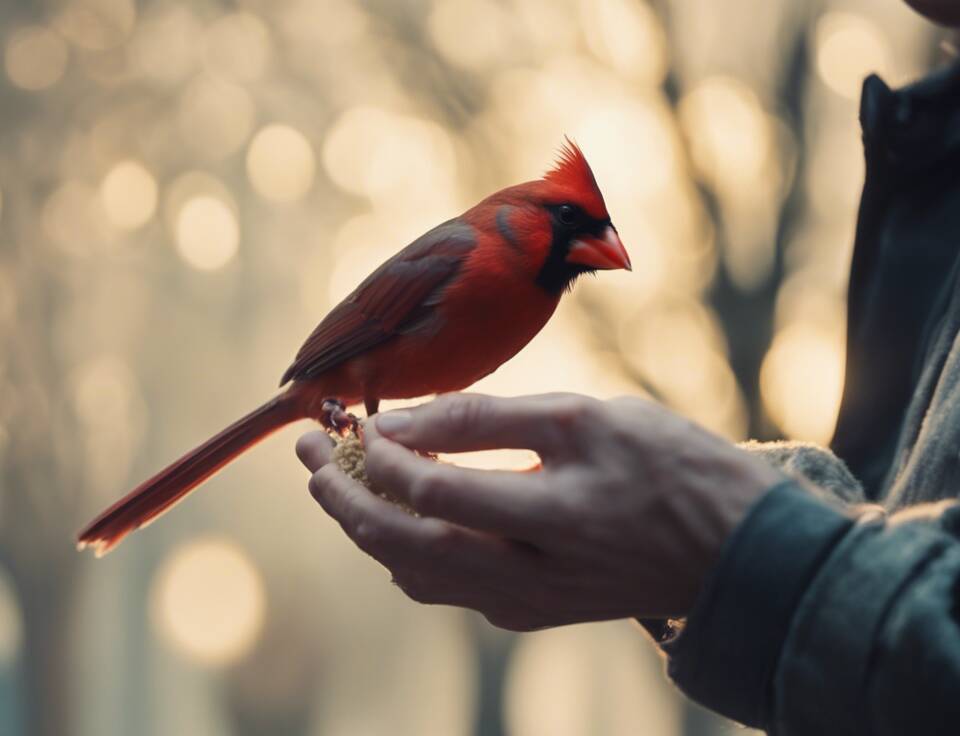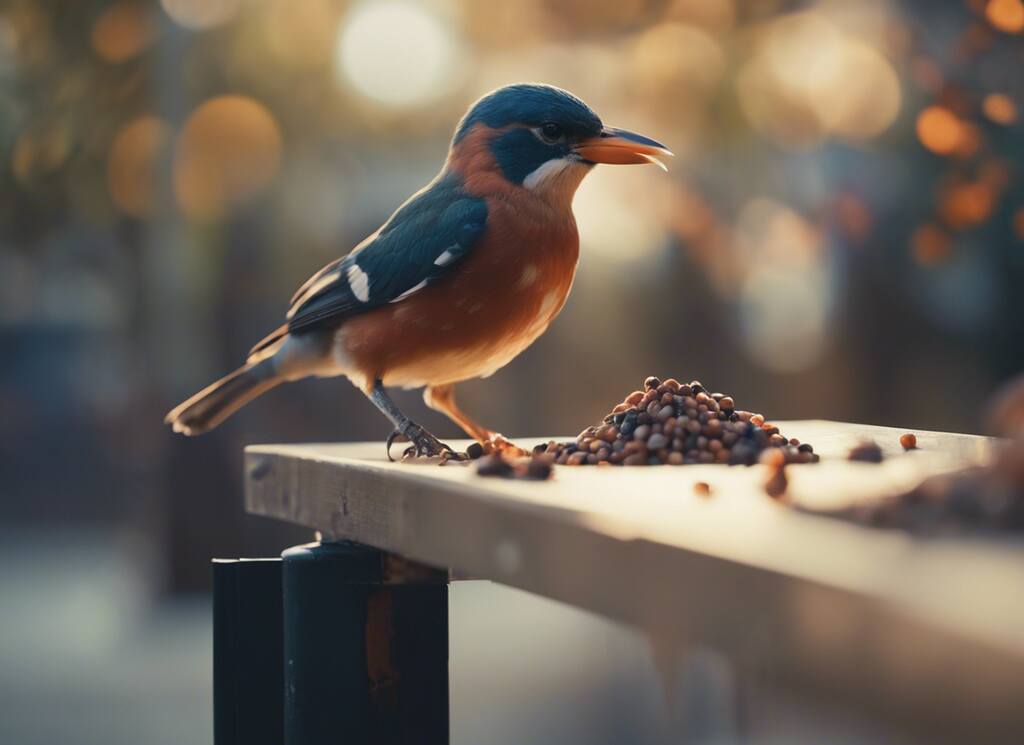Birds are known for their remarkable intelligence and ability to adapt to their environment. One intriguing question that arises is whether birds can differentiate and remember individuals who provide them with food. This phenomenon leads to the captivating inquiry: do birds possess the capability to recognize and acknowledge those who feed them?
Table of Contents
Do Birds Have the Ability to Recognize Individuals Who Provide Them with Food?
The Cognitive Abilities of Birds
Birds, particularly species like crows, jays, ravens, and parrots, have exhibited high levels of intelligence in various studies. These birds showcase problem-solving skills, tool usage, and even the capacity for complex communication. Such cognitive abilities suggest that birds may have the capacity to recognize individuals based on various factors, including their behaviors and interactions.
Observations in the Wild
In the wild, many bird species display behaviors that indicate a level of recognition towards humans who feed them regularly. For instance, in urban environments, pigeons and seagulls often approach individuals who frequently provide them with food. These birds demonstrate a familiarity with certain people and show a preference towards those who offer sustenance.
Studies on Bird Behavior
Research studies have delved into the question of whether birds can recognize individuals who feed them. One study conducted on magpies revealed that these birds could differentiate between friendly and hostile faces. The magpies showed a preference for individuals who had previously fed them, indicating a form of recognition based on past interactions.
Associative Learning in Birds
Birds are capable of associative learning, where they link a particular stimulus or action with a specific outcome. In the context of being fed by humans, birds can associate certain individuals with the positive experience of receiving food. This association contributes to their ability to recognize and seek out those who provide them with sustenance.
Social Dynamics in Bird Communities
In some bird species, particularly those with strong social structures, recognizing individuals who offer food can be advantageous. By forming relationships with reliable food sources, birds can enhance their chances of survival and reproductive success. This social dynamic reinforces the idea that birds may indeed have the ability to identify and remember those who feed them.
The Role of Visual and Auditory Cues
Birds rely on various sensory cues to recognize individuals, including visual and auditory signals. They may associate specific visual characteristics or sounds with the act of being fed. Through repeated exposure to these cues in the context of feeding, birds can learn to identify and respond to familiar individuals accordingly.
While the question of whether birds can recognize individuals who feed them continues to be a subject of scientific inquiry, evidence from observations and studies suggests that birds may possess this ability. Their cognitive prowess, social behaviors, and capacity for associative learning support the notion that birds can indeed acknowledge and remember those who provide them with food. This fascinating aspect of avian behavior adds another layer to our understanding of the intricate relationships between humans and the natural world.

The Impact of Human Interaction on Bird Feeding Behavior and Social Dynamics
Humans and birds share a unique bond when it comes to bird feeding. Have you ever wondered if birds know who feeds them? Let’s delve into the impact of human interaction on bird feeding behavior and social dynamics.
Understanding Bird Feeding Behavior
Bird feeding behavior is influenced by various factors, including food availability, competition, predation risk, and human interaction. When humans provide food for birds, it can alter their natural foraging patterns. Birds may become dependent on the supplemental food source, leading to changes in their behavior and social interactions.
The Role of Human Interaction
Birds are highly adaptable creatures. When humans consistently provide food in bird feeders or designated feeding areas, birds quickly learn to recognize these locations as a reliable food source. Over time, birds may start associating specific individuals with the act of feeding them. This human-bird association can lead to fascinating behavioral changes in birds.
Recognition of Humans
Studies have shown that some bird species, such as crows and chickadees, are capable of recognizing individual humans. They can distinguish between friendly feeders and potential threats based on past interactions. Birds may exhibit different responses to familiar faces, demonstrating that they have the ability to remember and categorize human feeders.
Social Dynamics Among Birds
Human-provided food sources can also influence the social dynamics within bird populations. Feeding sites often attract multiple bird species, leading to interspecies competition for food. Dominant bird species may establish control over feeding areas, creating hierarchies that impact the feeding behavior of other species.
Implications for Conservation
While the act of feeding birds can be a rewarding experience for humans, it is essential to consider the potential implications for bird populations. Supplemental feeding can create artificial dependencies among birds, affecting their foraging skills and natural behavior. Furthermore, overcrowding at feeding sites can increase the risk of disease transmission among bird populations.
Promoting Healthy Bird Feeding Practices
To promote healthy bird feeding practices, it is crucial to provide a varied and nutritious diet for birds. Instead of relying solely on bird feeders, consider planting native plants that produce fruits, seeds, and nectar to support local bird species. Additionally, maintaining clean feeding areas can help prevent the spread of pathogens and ensure the well-being of visiting birds.
Human interaction plays a significant role in shaping bird feeding behavior and social dynamics. While birds may not fully understand the concept of feeding, they can recognize and respond to familiar human feeders. By considering the implications of bird feeding practices and promoting responsible behavior, we can foster a harmonious relationship between humans and birds in the natural world.

Conclusion
When exploring the world of bird feeding, it becomes apparent that these feathered creatures possess remarkable capabilities that extend beyond simple survival instincts. While the question of whether birds can truly discern and recognize individuals who provide them with food remains open to interpretation, numerous studies and anecdotal evidence suggest that birds may indeed have the capacity to differentiate between various feeders based on their behavior, appearance, and regularity of feeding.
The impact of human interaction on bird feeding behavior and social dynamics is multifaceted. Human intervention through consistent feeding practices can lead to the creation of dependency among birds, altering their natural foraging behaviors. This dependency raises ethical considerations regarding the long-term effects on bird populations and their ability to thrive independently. Additionally, human-provided food sources can attract large numbers of birds to specific areas, leading to potential competition for resources and altering the dynamics of local bird communities.
As bird enthusiasts and nature lovers, it is essential to approach bird feeding with a sense of responsibility and mindfulness towards the well-being of these avian creatures. While the act of feeding birds can bring joy and a sense of connection to the natural world, it is crucial to strike a balance between providing support and ensuring that birds maintain their natural foraging skills and behaviors. By offering a diverse array of bird-friendly foods and creating a habitat that encourages natural foraging, we can enhance the lives of birds without compromising their innate abilities.
The question of whether birds can recognize individuals who provide them with food continues to intrigue researchers and bird enthusiasts alike. While scientific evidence may not definitively prove this ability, the bonds formed between humans and birds through regular feeding practices suggest a deeper level of understanding and connection that transcends mere instinct.
As we navigate the complex dynamics of bird feeding and human-wildlife interactions, let us approach these relationships with respect, admiration, and a commitment to fostering the well-being of our feathered friends in a way that honors their natural behaviors and instincts.



